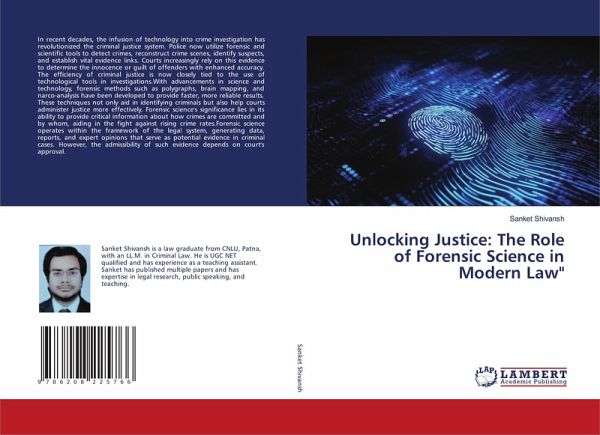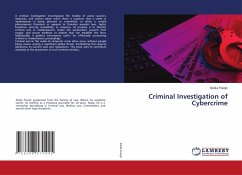
Unlocking Justice: The Role of Forensic Science in Modern Law"
Versandkostenfrei!
Versandfertig in 6-10 Tagen
40,99 €
inkl. MwSt.

PAYBACK Punkte
20 °P sammeln!
In recent decades, the infusion of technology into crime investigation has revolutionized the criminal justice system. Police now utilize forensic and scientific tools to detect crimes, reconstruct crime scenes, identify suspects, and establish vital evidence links. Courts increasingly rely on this evidence to determine the innocence or guilt of offenders with enhanced accuracy. The efficiency of criminal justice is now closely tied to the use of technological tools in investigations.With advancements in science and technology, forensic methods such as polygraphs, brain mapping, and narco-anal...
In recent decades, the infusion of technology into crime investigation has revolutionized the criminal justice system. Police now utilize forensic and scientific tools to detect crimes, reconstruct crime scenes, identify suspects, and establish vital evidence links. Courts increasingly rely on this evidence to determine the innocence or guilt of offenders with enhanced accuracy. The efficiency of criminal justice is now closely tied to the use of technological tools in investigations.With advancements in science and technology, forensic methods such as polygraphs, brain mapping, and narco-analysis have been developed to provide faster, more reliable results. These techniques not only aid in identifying criminals but also help courts administer justice more effectively. Forensic science's significance lies in its ability to provide critical information about how crimes are committed and by whom, aiding in the fight against rising crime rates.Forensic science operates within the framework of the legal system, generating data, reports, and expert opinions that serve as potential evidence in criminal cases. However, the admissibility of such evidence depends on court's approval.














